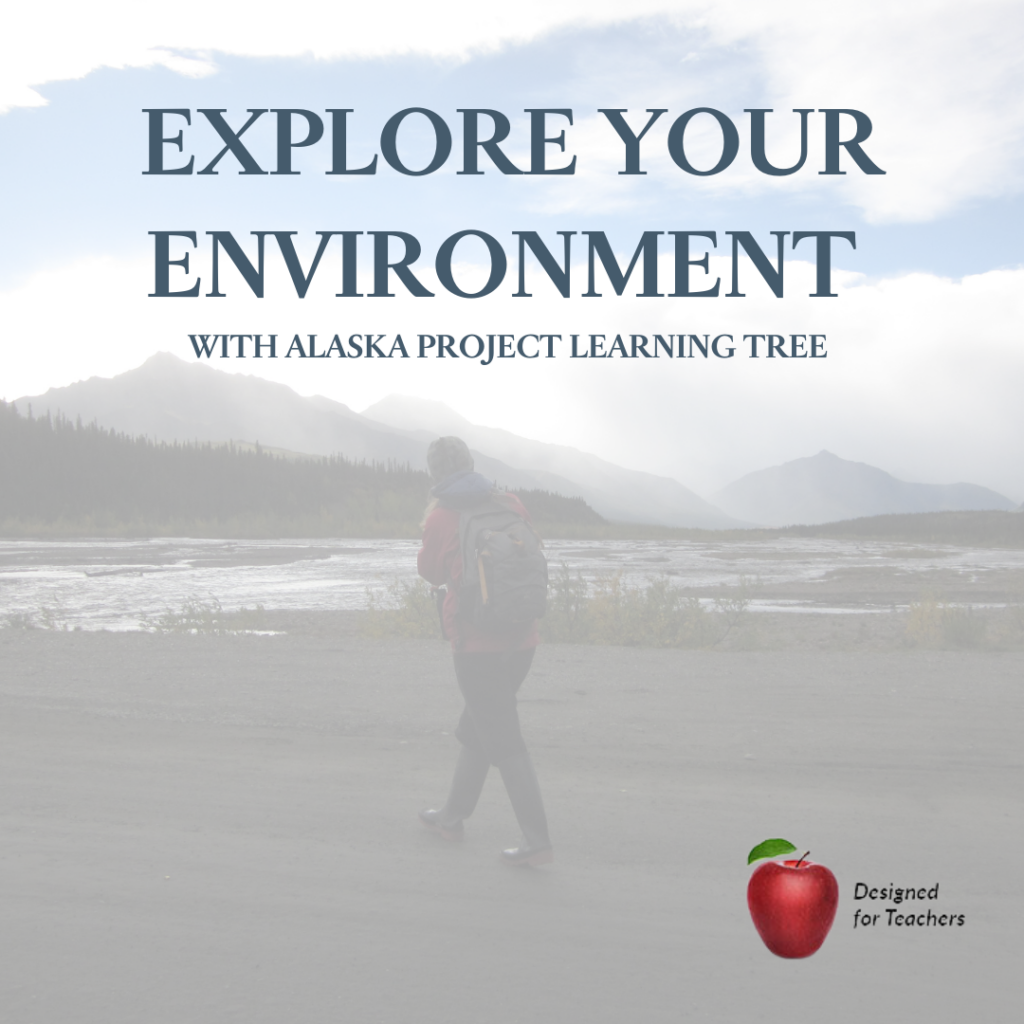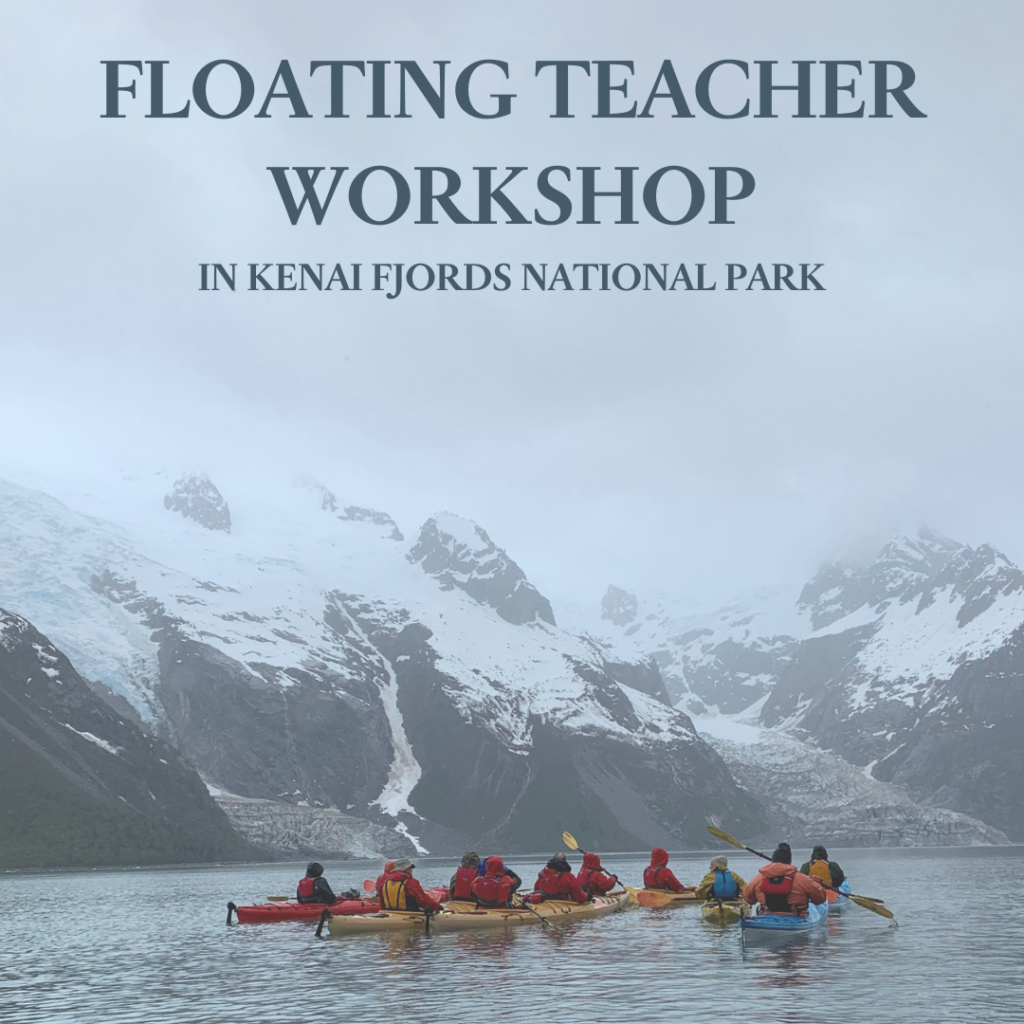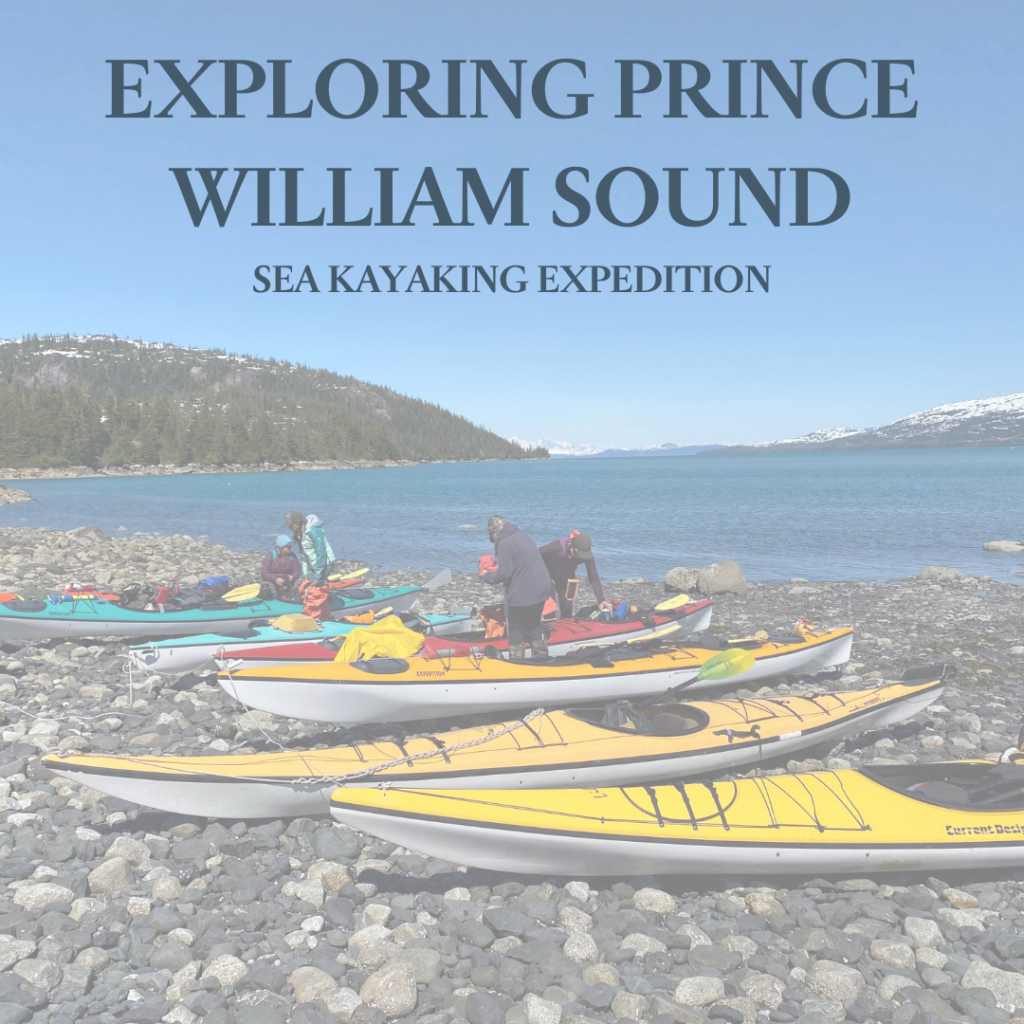Teacher Trainings

Explore your Environment with Alaska Project Learning Tree
Project Learning Tree (PLT) offers flexible and engaging lessons that incorporate STEM, language arts, and social studies, and encourage collaborative, inquiry-based learning that can be integrated into your existing curriculum. Students benefit in multiple ways from nature-based learning: decreased anxiety, reduced stress, improved behavior, and increased engagement, to name a few. And teachers do too! In this unique teacher workshop, we’ll explore the boreal forest and tundra, learning about natural history while being immersed in outdoor teaching and learning techniques. PLT coordinator Molly Gillespie will pair standard based activities with artist and educator Molissa Udevitz who will guide educators in daily mindful movement activities as another way to explore the natural world. You’ll slow down, heighten your senses, and deepen your understanding of – and connection to – Denali’s environment and the natural world. These activities can be used with your students to incorporate more kinesthetic and social-emotional learning into your classes. You’ll leave this workshop with ideas, inspiration, and a breath of fresh air!
Thanks to funding from the Sustainable Forestry Initiative’s Education Grant for Alaska Project Learning Tree, educators working in Alaska are eligible for a $250 scholarship for this course! More information can be found on the registration page.
Hiking will be off trail over uneven tundra, forest, and river bar terrains, covering distances of approximately 3-5 miles round trip with as much as 1,500 feet of elevation gain. We will likely encounter wet tundra / forest conditions and stream crossings with water levels that are above hiking boots. Participants must be in good physical condition.
Like any outdoor activity, there are inherent risks associated with our field courses yet we actively manage our exposures and depend on you to play a role in our risk management. Read more here.
One professional development credit is available for this course through the University of Alaska Anchorage for an additional fee of $79. Information on the credit requirements, including how to register and pay for the credit through UAA, are available from the links below.
If you have never taken a class with the University of Alaska system before, start by opening the “new to UA System” document and following the directions on pages 1-3 to set up an account with the University. The syllabus and the specific registration information will be available in April.
This course is currently sold out. To be added to the waitlist, click here.

Kenai Fjords Floating Teacher Workshop: Sea Kayaking
Come to Kenai Fjords National Park for a once-in-a-lifetime experience working with scientists, kayaking near glaciers, and living aboard a 97-foot vessel in a remote fjord estuary ecosystem. Work collaboratively to think of new ways to bring ocean issues and scientific research into your classroom through place-based, audience-centered learning. This course includes two days of education workshops in Seward, followed by 4 nights on a charter boat deep in Kenai Fjords National Park. Learn about glaciology and ecology while observing wildlife in the park! Discussion topics will include culturally responsive teaching, environmental education theory, and inspiring student engagement with science through hands-on learning. This course is presented with the National Park Service’s Ocean Alaska Science and Learning Center (OASLC) and is led by National Park Education Coordinator Fiona North.
Applications open February 1, and first review of applications will take place on February 13th. Educators from communities effected by the Exxon-Valdez Oil Spill (EVOS) are highly encouraged to apply and have priority during registration. Payment is due after notice of accepted application. Course credits from UAA ($119) are not included in the registration cost.
Participants must be in good fitness and health and equipped for sudden changes in weather or long periods of inclement weather. Participants must be able to walk short distances over uneven, slippery coastal terrain carrying up to 25 pounds of personal and group gear and longer distances with a day pack. No previous kayak experience is necessary, but participants must be capable of getting in and out of a kayak and of paddling a kayak for a few hours at a time. Participants must sit comfortably in a sea kayak with a 20″ cockpit, ensuring proper accommodation for the hips. Participants must be able to manage physical, emotional, and dietary needs in a backcountry setting. The group will be 2+ hours from definitive medical care at most times. Please see the course overview for more information.
Like any outdoor activity, there are inherent risks associated with our field courses yet we actively manage our exposures and depend on you to play a role in our risk management. Read more here.
Three professional development credits are available for this course through the University of Alaska Anchorage for an additional fee of $119. Information on the credit requirements, including how to register and pay for the credit through UAA, are available from the links below.
If you have never taken a class with the University of Alaska system before, start by opening the “new to UA System” document and following the directions on pages 1-3 to set up an account with the University. The syllabus and the specific registration information will be available in April.

Exploring Prince William Sound: Sea Kayaking
Explore the scenic heart of Prince William Sound by kayak and by foot to encounter glaciers and whales, sea lions and shorebirds. Share new ways to bring the natural world into your classroom while developing curriculum with other Alaska educators. Spend six days camping, kayaking, and discovering with Chugach National Forest Wilderness Manager Tim Lydon. The main purpose of the course is to inspire teachers to connect their students to nature. The human relationship to nature will be a central theme, with an emphasis on America’s public lands and our idea of wilderness. Topics will include the area’s Alaska Native history, early Euro-American activities, evolution of the Chugach National Forest, 1989 Exxon Valdez oil spill, and the local effects of global climate change. The group will also learn about the area’s flora, fauna and glaciers while base camping at one beach camp for the duration of the program. Educators from communities affected by the Exxon-Valdez Oil Spill (EVOS) are highly encouraged to apply and have priority during registration.
Application period opens February 1st and the first review of applications will take place on February 13th. Payment due after notice of accepted application. Course credits from UAA ($119) not included in registration cost.
![]()
Participants must be in good fitness and health, equipped for long exposure in variable weather, prepared and fit for off-trail uneven hiking, and potentially camping with tents on snow. There are very few low-strenuous activity options on this trip, with the exception of class time. No previous kayak experience is necessary, but participants must be capable of getting in and out of a kayak, and of paddling a kayak for several hours at a time in conditions that could change suddenly. Participants must be able to walk short distances over uneven coastal terrain carrying up to 45 pounds of personal and group gear. Please see course overview for more information.
Like any outdoor activity, there are inherent risks associated with our field courses yet we actively manage our exposures and depend on you to play a role in our risk management. Read more here.
Three professional development credits are available for this course through the University of Alaska Anchorage for an additional fee of $119. Information on the credit requirements, including how to register and pay for the credit through UAA, are available from the links below.
If you have never taken a class with the University of Alaska system before, start by opening the “new to UA System” document and following the directions on pages 1-3 to set up an account with the University. The syllabus and the specific registration information will be available in April.
All Field Courses are Accredited for Teachers
All of the field courses are accredited through the University of Alaska-Anchorage for Professional Development Credit. Scholarships are awarded in January of each year. Scholarships are only available for Denali-based field courses, and are not available for Anchorage-based field courses (PWS Teachers & KEFJ Teachers workshops). These field courses are very popular with teachers willing to self-direct their study and application of the subject matter. Each field course has an option for one professional development credit. See a sampling of field courses on our field course page.


